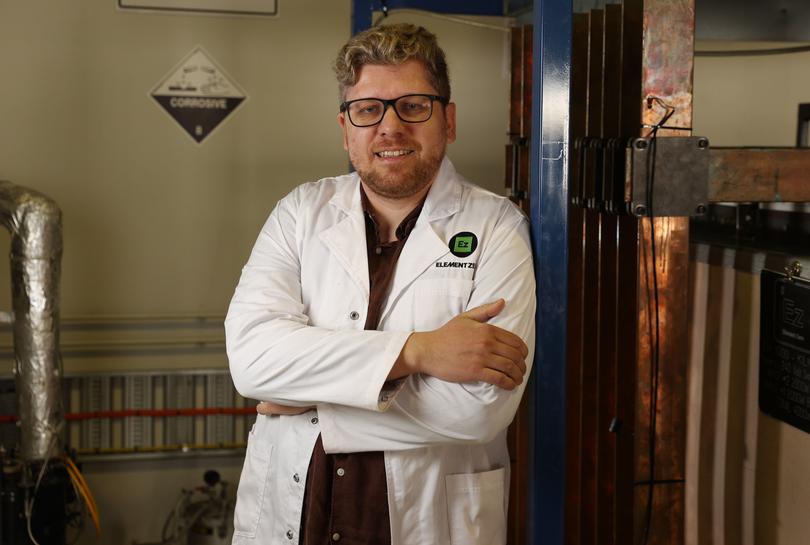Fortescue v Element Zero: Miner claims patent ‘gotcha’ moment, says family surveillance a ‘collateral issue’

Raiding the homes and office of two former Fortescue employees to gather evidence for legal action was appropriate, while the surveillance of their families and staff was “a collateral issue”, a court has been told.
The mining giant took drastic steps in a bid to prove scientists Bart Kolodziejczyk and Bjorn Winther-Jensen stole intellectual property before quitting in late 2021, then used the ionic iron processing technology as the basis for their new business Element Zero.
Earlier this month, 500 pages of private investigator reports released by the Federal Court revealed Dr Kolodziejczyk and his wife were photographed around Melbourne, including at their home.
Sign up to The Nightly's newsletters.
Get the first look at the digital newspaper, curated daily stories and breaking headlines delivered to your inbox.
By continuing you agree to our Terms and Privacy Policy.Dr Winther-Jensen was also snapped with his wife and his teenage niece was observed.
At their Element Zero business in Malaga, covert cameras were used to photograph inside, and people entering and leaving were snapped.
The scientists argue that the scope of the material seized in the raids was excessive, scooping up vast amounts of unrelated and private documents.
But Fortescue’s barrister Julian Cooke told the court on Tuesday it was “appropriate”.
“And the extent of the surveillance is a collateral issue,” Mr Cooke said.

Mr Cooke said Judge Melissa Perry rightly granted the search orders after finding Fortescue, founded by Andrew “Twiggy” Forrest, had a strong case “established by a very substantial body of evidence”.
He also cited the judge saying there should be no advance notice of the raids because “there is a real risk that information might be destroyed or hidden, squirrelled away”.
Fortescue claims it carried out the surveillance as part of a requirement to identify minors or other vulnerable people who might be adversely affected by the raids.
Mr Cooke also told the court that Dr Kolodziejczyk’s claim through his barrister, David Studdy, that he simply did not work on an ionic process at Fortescue was “absolutely startling”.
He pointed to an email from the scientist in December 2020 that had a patent assessment attached, and described the form as “very revealing”.
In the email, Dr Kolodziejczyk described the ionic process as “proven” in a small-scale laboratory and “important” enough that he would be working on it over Christmas.

He had a “stretch target” from billionaire chairman Mr Forrest to scale it up to a commercial system in the Pilbara in mid-2021.
“He has developed this enough, this invention, which he is about to put into a patent application,” Mr Cooke said.
“He says ‘protecting this development will give FFI, Fortescue Future Industries, a competitive advantage in this growing industry space’.
“Lots of work has been done, your honour.”
An ensuing patent application by Element Zero was a “gotcha” moment, the barrister said.
Mr Cooke said the respondents did not “even attempt to address” detailed technical evidence submitted to the court by a resources sector engineer, Wayne McFaull, that it was “implausible” they could have designed and constructed Element Zero’s pilot plant “with limited financial resources” and “without regard to Fortescue’s confidential information”.
The barrister went through other emails that he said showed another party being sued by Fortescue, former senior executive Michael Masterman, was “working very closely” with Dr Kolodziejczyk.
“His fingerprints are all over it as well,” Mr Cooke said.
Mr Masterman provided $3.8 million in funding to Element Zero and previously worked closely with Mr Forrest at the ill-fated Anaconda Nickel.
